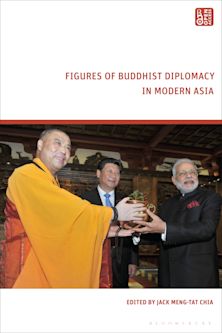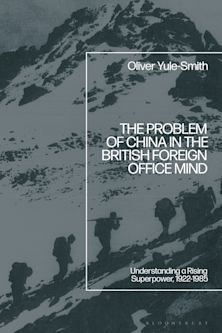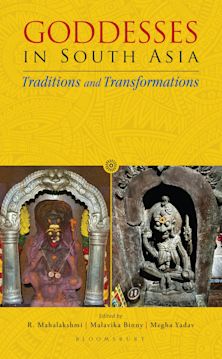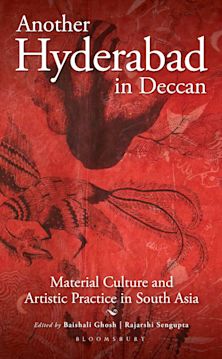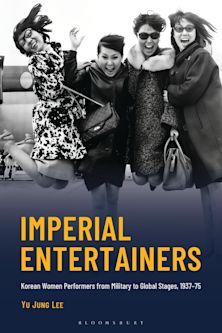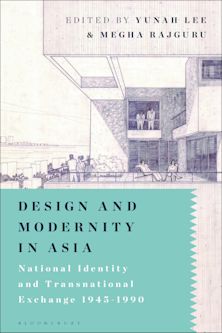- Home
- ACADEMIC
- History
- Asian History
- Embattled Glory
Embattled Glory
Veterans, Military Families, and the Politics of Patriotism in China, 1949–2007
Embattled Glory
Veterans, Military Families, and the Politics of Patriotism in China, 1949–2007
For information on how we process your data, read our Privacy Policy
Thank you. We will email you when this book is available to order
You must sign in to add this item to your wishlist. Please sign in or create an account
Description
This groundbreaking book examines the treatment of veterans of the People's Liberation Army and military families as an illuminating window into Chinese patriotism, citizenship, and legitimacy. Using a wealth of recently declassified archival documents and employing a wide comparative perspective, Neil J. Diamant presents the first large-scale study of these groups in comparison to similar populations in other parts of Asia and in the West. He offers an unprecedented look at the "everyday interactions" among veterans, military families, state officials, and ordinary citizens as they attempted to secure urban residence, jobs, spouses, medical care, and respect.
Often celebrated by the government for their glorious and patriotic service, veterans and military families were the beneficiaries of many policies, such as affirmative action in hiring and access to political power. But, the author asks, if veteran and military families were heroic, why did many of them compare their situation to "donkeys slaughtered after grinding the wheat" and "tossed-away dirty socks?" And what explains the thousands of suicides among veterans, rampant discrimination, and ongoing protests against the government? By comparing veterans in China to their counterparts in the United States, the Soviet Union, Israel, and elsewhere, this book provides important answers to the larger question of what circumstances lead to better or worse treatment of veterans, and what this treatment tells us about patriotism, legitimacy, and respect for military service.
Table of Contents
Chapter 2: To the City or Bust: Veterans and the Quest for Urban Citizenship
Chapter 3: The Complications of Veteran Identities
Chapter 4: The Job Front
Chapter 5: Stuck in the State's Cement and Falling Through Its Cracks: Veterans in Policy and Bureaucracy
Chapter 6: Vulnerable Heroes: Veterans' Heath, Family, and Sexuality in Chinese Politics
Chapter 7: Between Glory and Welfare: Military Families, the State, and Community
Chapter 8: Salt in the Wounds: Veterans in the Reform Era, 1978–2007
Chapter 9: Conclusion: Walter Reed, Iraq, and China
Appendix A: A Brief Survey of Archival Materials in China
Appendix B: Selected Character List
Appendix C: Source Materials
Product details
| Published | Jan 16 2010 |
|---|---|
| Format | Ebook (PDF) |
| Edition | 1st |
| Extent | 480 |
| ISBN | 9798216322023 |
| Imprint | Rowman & Littlefield Publishers |
| Series | State & Society in East Asia |
| Publisher | Bloomsbury Publishing |
About the contributors
Reviews
-
Rarely is China described without some reference to its 'nationalism.' How do we explain, then, the overwhelmingly poor treatment of China's military veterans and their families, including those belonging to the triumphant People's Liberation Army? Diamant's answer, which draws on specific analyses of social and economic factors, carries us toward conclusions that will require a rethinking, for China, of the very idea of patriotism.
Arthur Waldron, University of Pennsylvania
-
Neil J. Diamant's excellent study of Chinese veterans goes a long way toward correcting this neglect [of the military and war in Western histories of China]. . . . His descriptions of the disappointments of veterans who come home from military service to find that they are not particularly welcome are very moving. . . . Diamant's book is about Chinese veterans, but it is informed by comparisons with the treatment of veterans in many other societies. The comparisons are so rich that they make the book a general study of the treatment of veterans, not just a book about China.
American Historical Review
-
A welcome addition to the limited literature on the subject. . . . Overall, the book sheds much-needed light on an understudied topic. Diamant does an excellent job of using archival material to improve our understanding of Chinese veterans in the Maoist era and adds to our understanding of politics and social issues in that era. . . . The author clearly has a passion for this topic. . . . He is deeply concerned with veterans and how they are treated, whether in China or elsewhere. Hopefully it will encourage further research and bring more scholarly attention to the comparative study of veterans' issues.
China Quarterly
-
A wonderful book that both expands the study of war from its normally European base to the significant case of China and also expands the study of contemporary China from the usual emphasis of party, village, and enterprise. Very well-written and exhaustively researched, it should be read by both students of war and of China. It is a far too rare marriage of rigorous theoretical questions and solid empirical answers.
Miguel Centeno, Princeton University
-
Although focused on China, this volume is as much a discussion about ‘veterans universal’ as it is about Chinese veterans. It is perhaps Diamant’s Israeli Defense Forces service during the Lebanon years that makes the difference, enhancing the quality of this title. . . . Diamant has created a more than interesting look at veterans’ benefits in China and has used comparative bridges to other nations and cultures to illuminate the point that what societies say about their veterans and what services and benefits they actually deliver are two very different things. It is a good piece of work and well worth reading.
Armed Forces & Society
-
Taking on a highly important and yet much neglected topic, Niel J. Diamant's new book . . . sheds light on larger questions regarding the legitimacy of war, patriotism, and nationalism in China. This . . . ambitious work . . . paints a sophisticated picture of the difficulties Chinese veterans have faced. . . . It makes a unique and welcome contribution to the sparse literature on the subject.
Journal of Political and Military History












